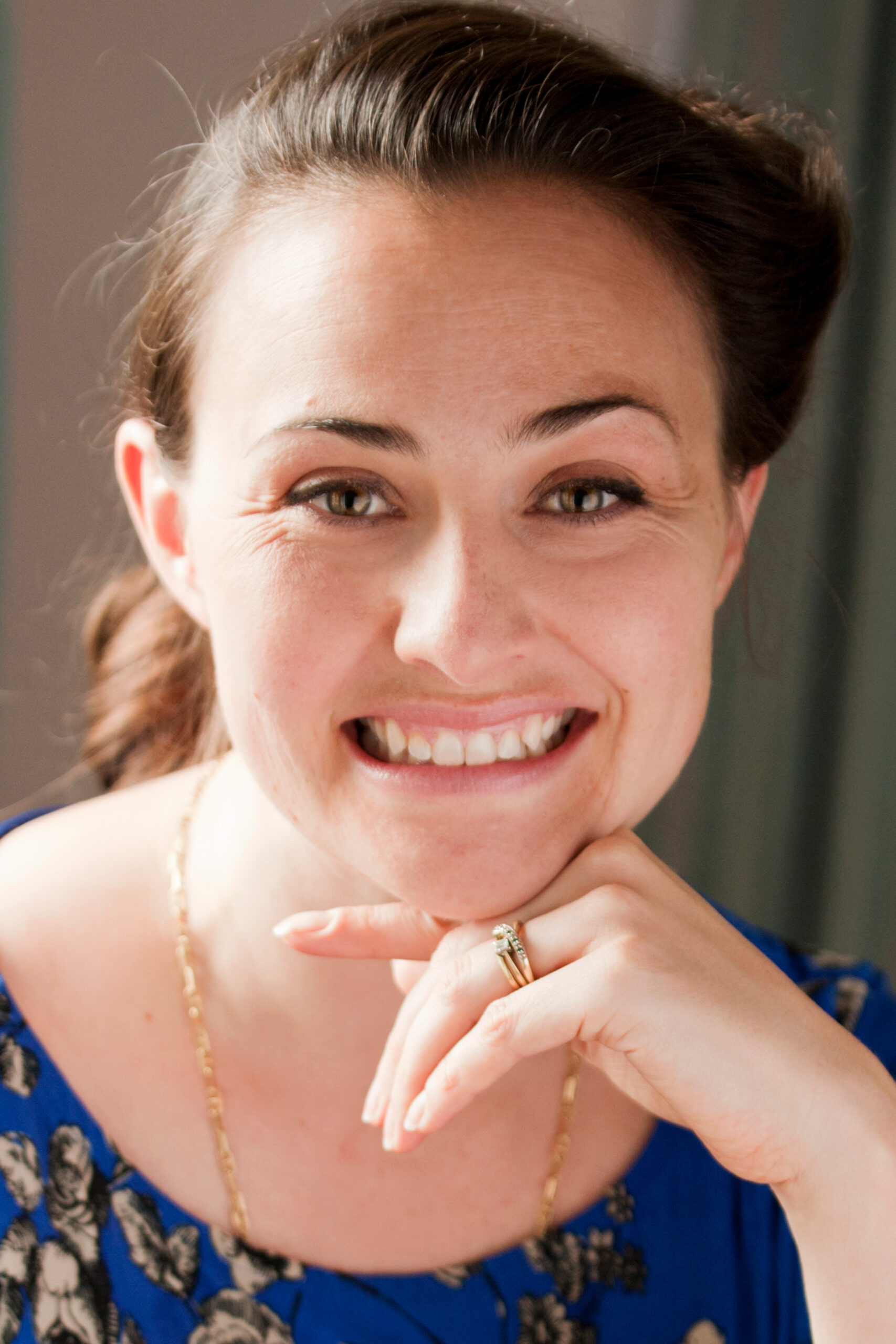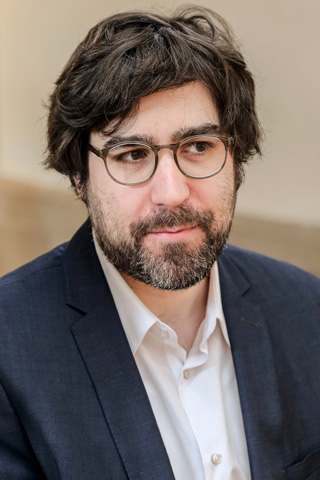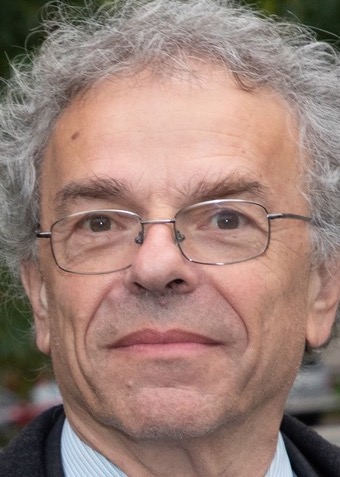Your Account
You are not logged in
Keynotes
We are delighted to welcome three keynote speakers at TeaP2025!
Abstract:
In this talk, I will present some of my recent studies investigating how we coordinate our movements in time with groups of others as well as my projects on virtual touch. I will propose that as a fundamentally social species, we are able to fulfill our need to feel connected to others by either inferring colocation in space or some form of joint action. Principally, my work investigates how we do this by using our senses to dynamically exchange social information with others. The work presented will highlight how these topics allow me to combine novel technologies. In the first half of the talk, I will show examples by presenting preliminary data from two group coordination studies, one using virtual reality and the other employing a Zoom-based version of the improvisational theatre Mirror Game combined with Motion Energy Analysis. I will then move onto discussing our recent and ongoing experiments that make use of both virtual reality and our mobile application "HandsOn" to probe individual touch behaviours and preferences.
Read more about Merle Fairhurst here.

Abstract:
Challenges like climate change require large-scale cooperation. To effectively address such global issues, it is essential to understand the factors that facilitate and constrain human cooperation. From the outset, cooperation poses a fundamental puzzle, as it always carries the risk of exploitation. If others are cooperating, why not simply reap the benefits without bearing the costs? And if others are not cooperating, why should you? From this logic, it would seem that cooperation should be difficult to sustain or even non-existent. Yet, the extent of cooperation we witness appears to contradict this logical dilemma. From social insects to human societies, cooperation seems to be the rule rather than the exception. In this talk, I will present both theoretical and empirical findings that shed some light on the conditions under which cooperation can be sustained, as well as those that lead to its breakdown. I will specifically focus on the principles of reciprocity and interdependence. These foundational principles, I will argue, not only explain why cooperation persists, but also help us predict its scope—whether it occurs among friends, tightly-knit groups, or even across broader intergroup structures. These insights, resulting also from the interdisciplinary cooperation across the social sciences, may help us understand the types of institutions needed to transcend localized cooperation and promote large-scale, intergroup cooperation.
Read more about Jörg Gross here.

Abstract:
Why don’t we see everything that we want to see or that we think we should see? From typos to tumors to gorillas in Introductory Psychology demos, humans manage to routinely miss targets that are "right in front of our eyes". In the psychologically most interesting cases, these are instances where observers fail to respond to stimuli that are clearly visible. The observers may even directly fixate on those stimuli. Some of these “Looked But Failed to See” (LBFTS) errors are life-threatening (e.g. missing that tumor or a weapon in carry-on baggage). Nevertheless, such errors are common enough that we can describe them as “normal blindness". If you are a radiologist in the US, these errors can lead to malpractice legal cases. When should an LBFTS error be considered to be legal negligance. I will give a four-part account of LBFTS errors: Human visual attention is 1) limited, 2) misguided, 3) incomplete, and 4) misunderstood. I will place this in the context of the Guided Search 6.0 model and I will illustrate with some demonstrations and with an emphasis on examples from radiology. If all goes well, you will look, you will fail to see, and you will gain insight into why that happens.
Read more about Jeremy Wolfe here.

Merle Fairhurst, Center for the Tactile Internet, TU Dresden, Germany
Title: Coordinating with others in time and through touchAbstract:
In this talk, I will present some of my recent studies investigating how we coordinate our movements in time with groups of others as well as my projects on virtual touch. I will propose that as a fundamentally social species, we are able to fulfill our need to feel connected to others by either inferring colocation in space or some form of joint action. Principally, my work investigates how we do this by using our senses to dynamically exchange social information with others. The work presented will highlight how these topics allow me to combine novel technologies. In the first half of the talk, I will show examples by presenting preliminary data from two group coordination studies, one using virtual reality and the other employing a Zoom-based version of the improvisational theatre Mirror Game combined with Motion Energy Analysis. I will then move onto discussing our recent and ongoing experiments that make use of both virtual reality and our mobile application "HandsOn" to probe individual touch behaviours and preferences.
Read more about Merle Fairhurst here.

Jörg Gross, Department of Psychology, University of Zurich, Switzerland
Title: From dyadic exchange to intergroup cooperation. How (in)direct reciprocity can help us understand when and why people help each otherAbstract:
Challenges like climate change require large-scale cooperation. To effectively address such global issues, it is essential to understand the factors that facilitate and constrain human cooperation. From the outset, cooperation poses a fundamental puzzle, as it always carries the risk of exploitation. If others are cooperating, why not simply reap the benefits without bearing the costs? And if others are not cooperating, why should you? From this logic, it would seem that cooperation should be difficult to sustain or even non-existent. Yet, the extent of cooperation we witness appears to contradict this logical dilemma. From social insects to human societies, cooperation seems to be the rule rather than the exception. In this talk, I will present both theoretical and empirical findings that shed some light on the conditions under which cooperation can be sustained, as well as those that lead to its breakdown. I will specifically focus on the principles of reciprocity and interdependence. These foundational principles, I will argue, not only explain why cooperation persists, but also help us predict its scope—whether it occurs among friends, tightly-knit groups, or even across broader intergroup structures. These insights, resulting also from the interdisciplinary cooperation across the social sciences, may help us understand the types of institutions needed to transcend localized cooperation and promote large-scale, intergroup cooperation.
Read more about Jörg Gross here.

Jeremy Wolfe, Department of Ophthalmology, Harvard Medical School, Boston, USA
Title: How did I miss that? How we ‘look but fail to see’ in the lab, the clinic, and the worldAbstract:
Why don’t we see everything that we want to see or that we think we should see? From typos to tumors to gorillas in Introductory Psychology demos, humans manage to routinely miss targets that are "right in front of our eyes". In the psychologically most interesting cases, these are instances where observers fail to respond to stimuli that are clearly visible. The observers may even directly fixate on those stimuli. Some of these “Looked But Failed to See” (LBFTS) errors are life-threatening (e.g. missing that tumor or a weapon in carry-on baggage). Nevertheless, such errors are common enough that we can describe them as “normal blindness". If you are a radiologist in the US, these errors can lead to malpractice legal cases. When should an LBFTS error be considered to be legal negligance. I will give a four-part account of LBFTS errors: Human visual attention is 1) limited, 2) misguided, 3) incomplete, and 4) misunderstood. I will place this in the context of the Guided Search 6.0 model and I will illustrate with some demonstrations and with an emphasis on examples from radiology. If all goes well, you will look, you will fail to see, and you will gain insight into why that happens.
Read more about Jeremy Wolfe here.

Contact
For assistance and questions, please contact:
Conference email
Privacy policy
COMS 119.39
